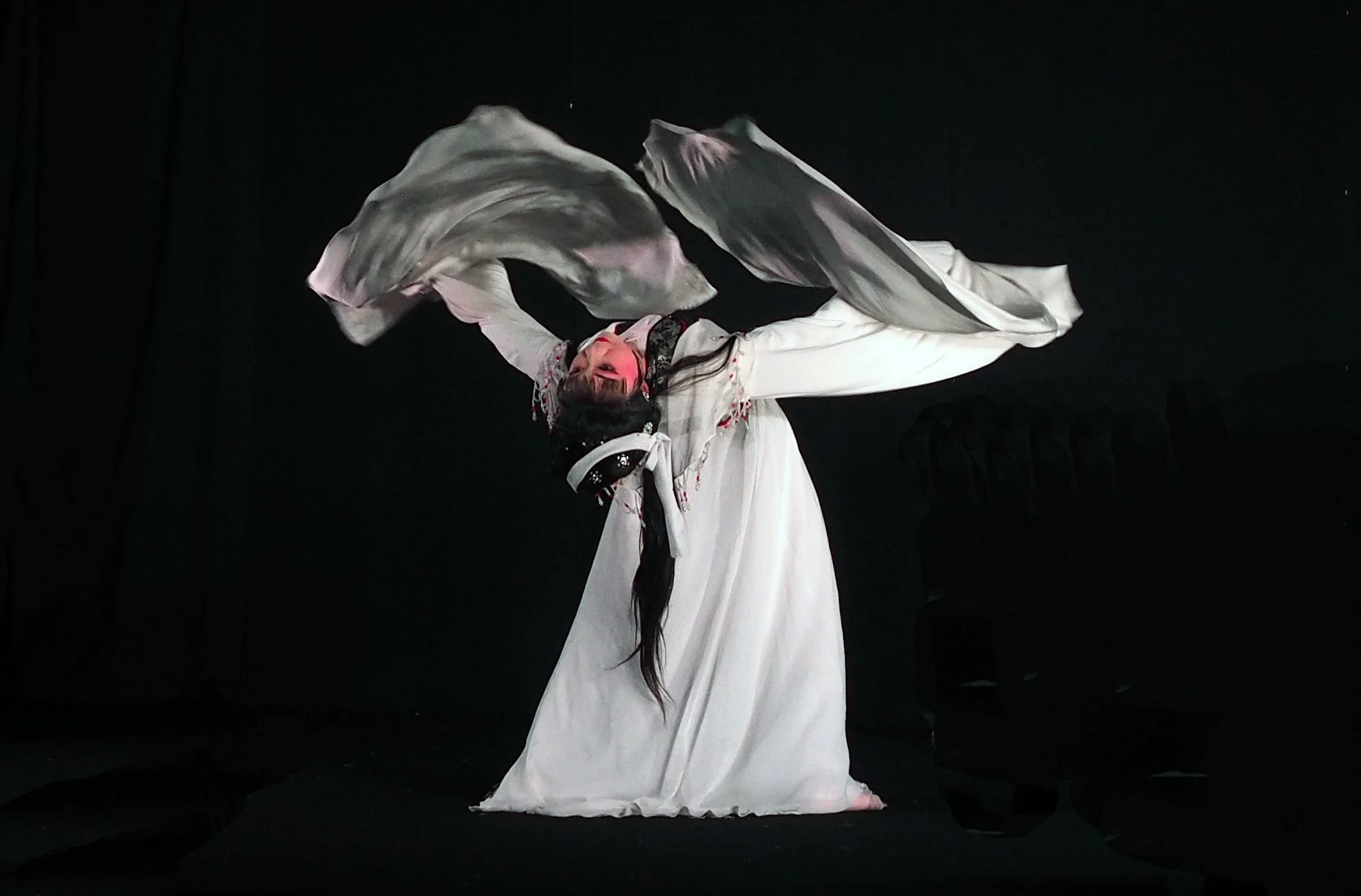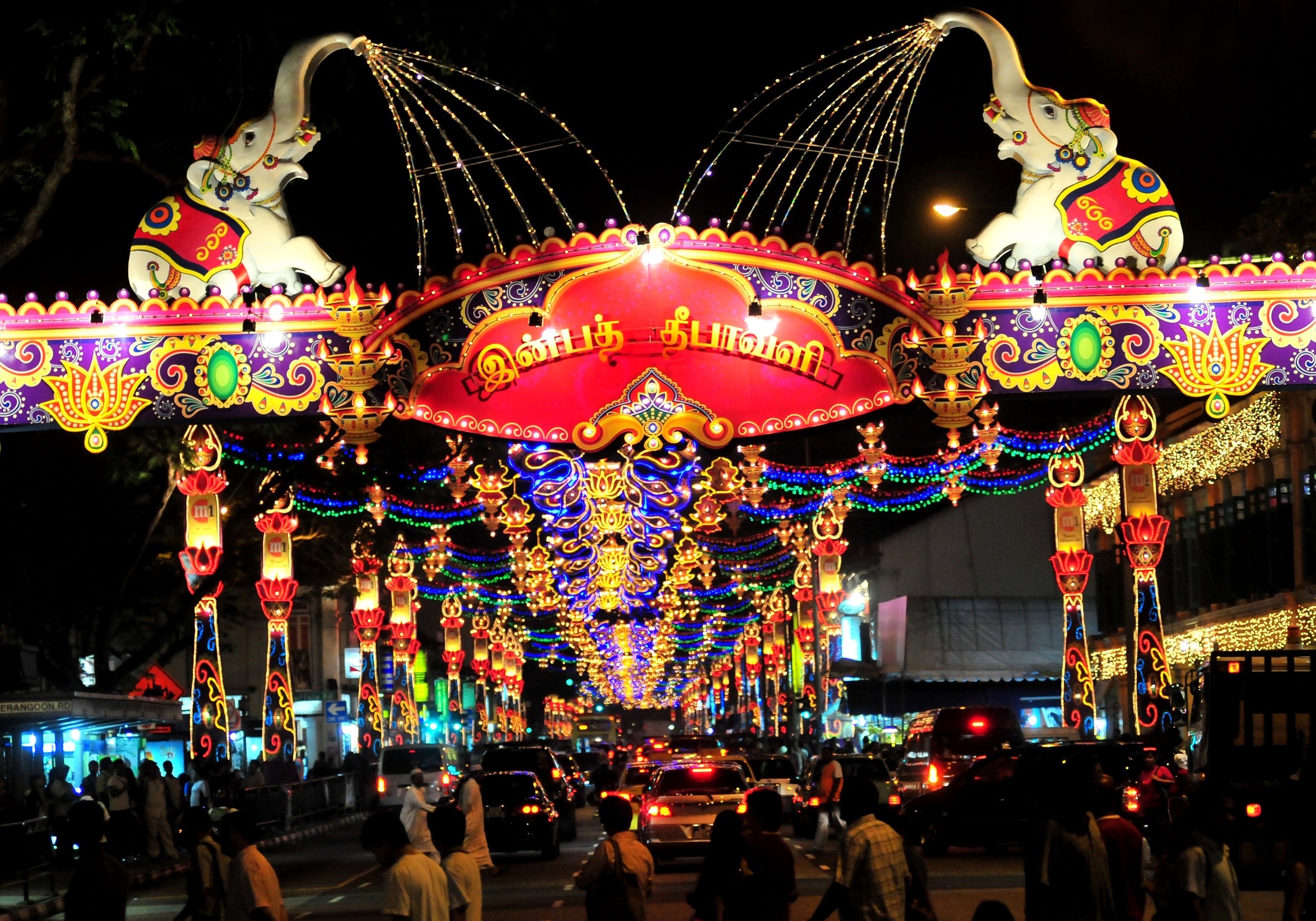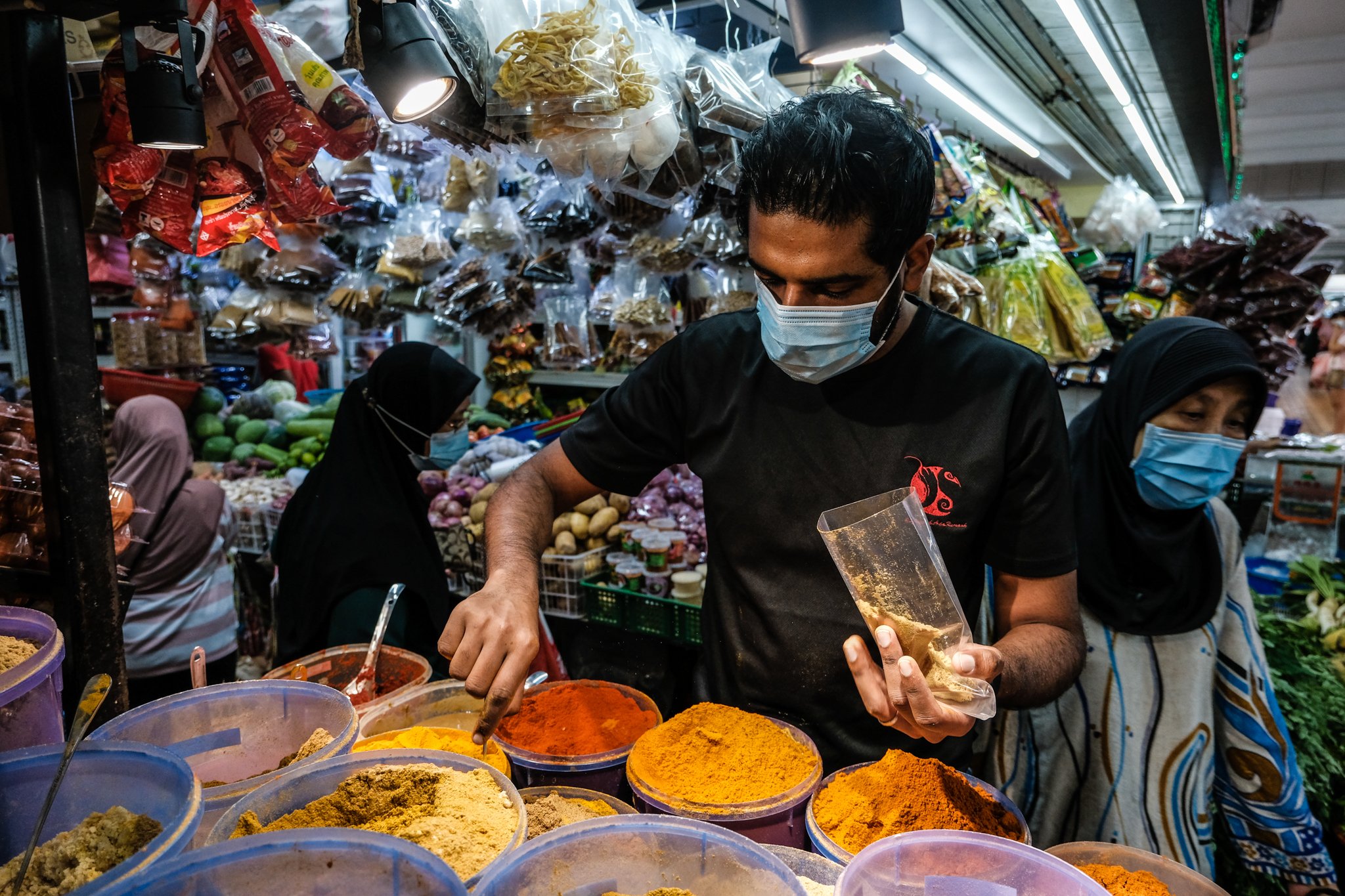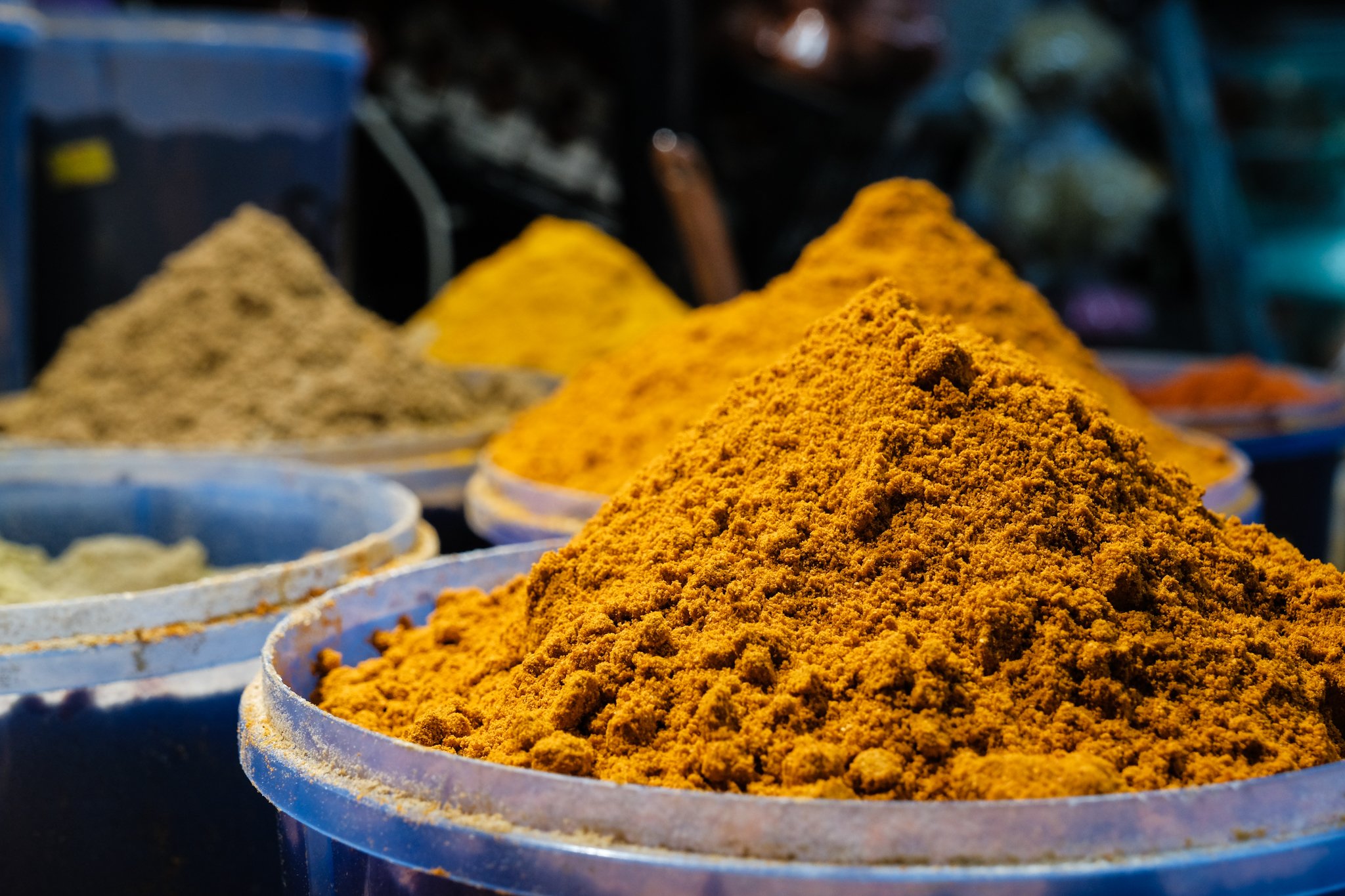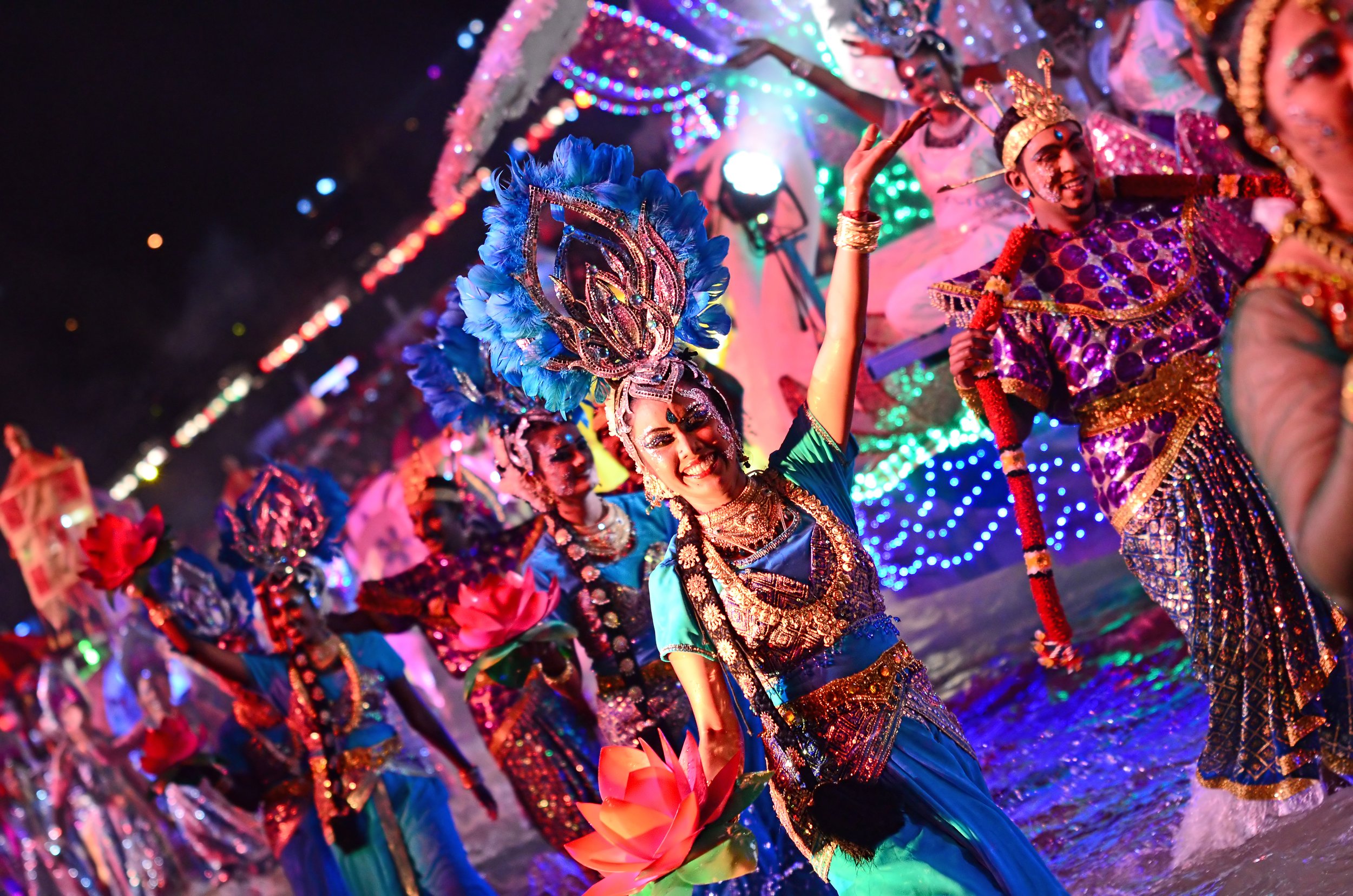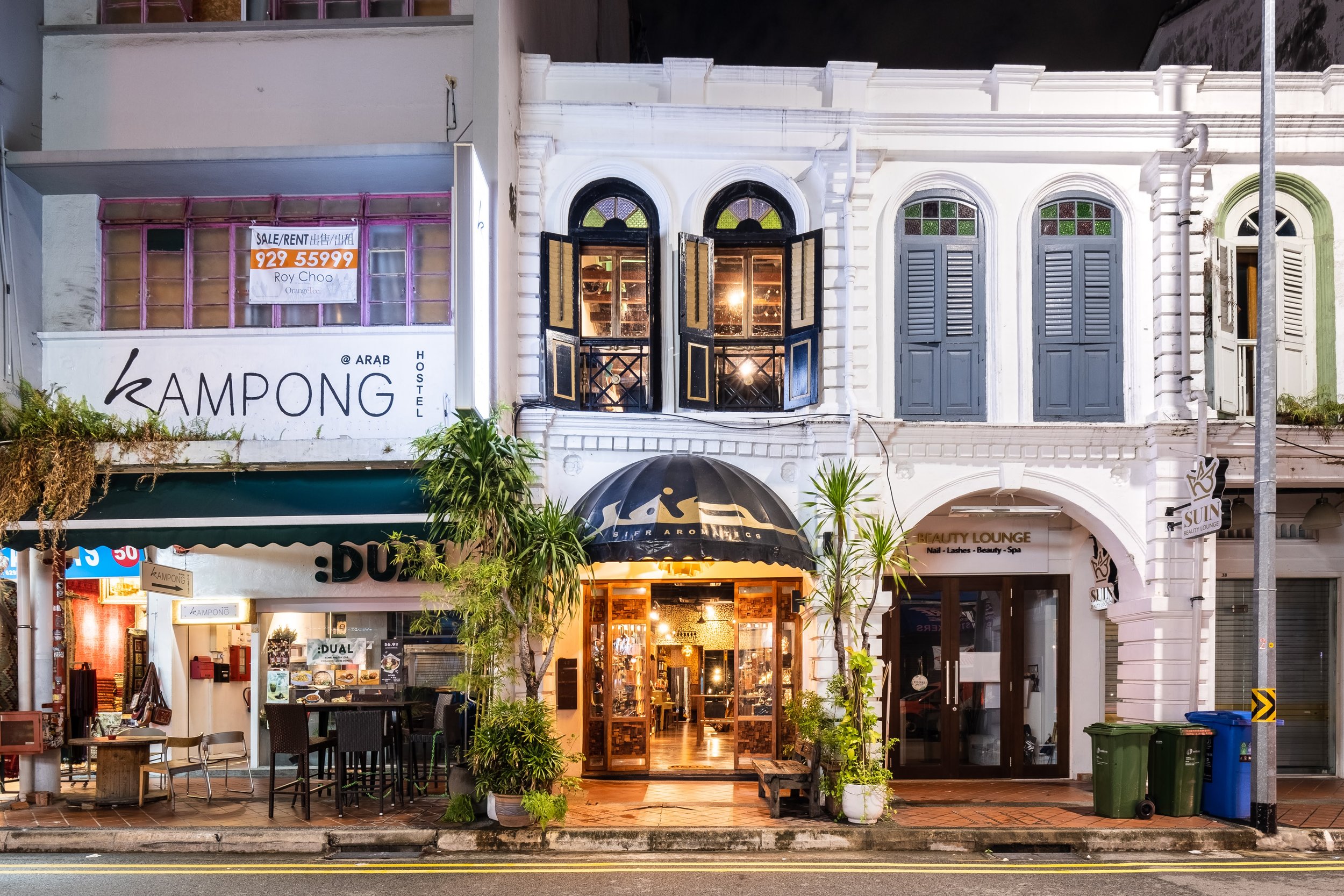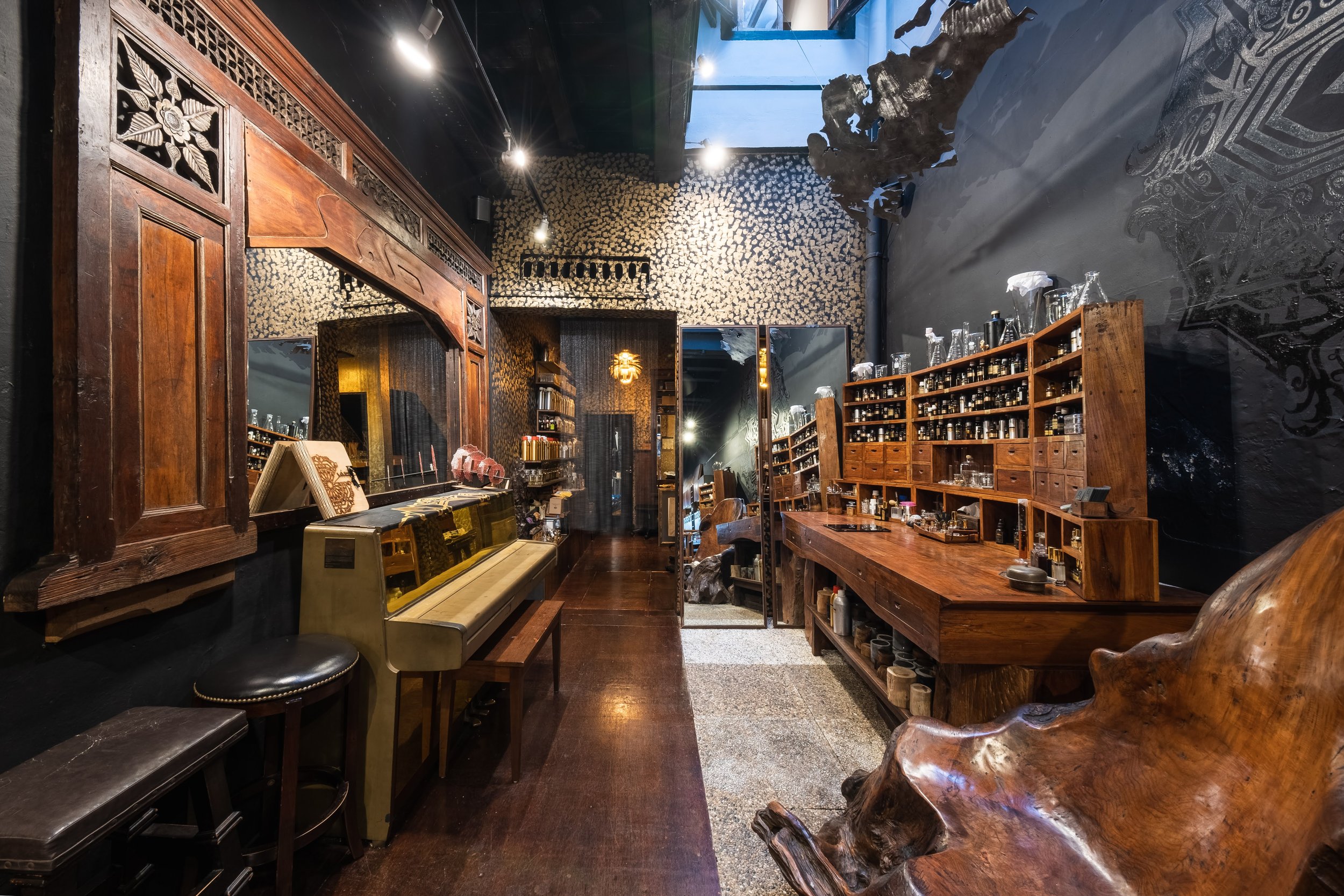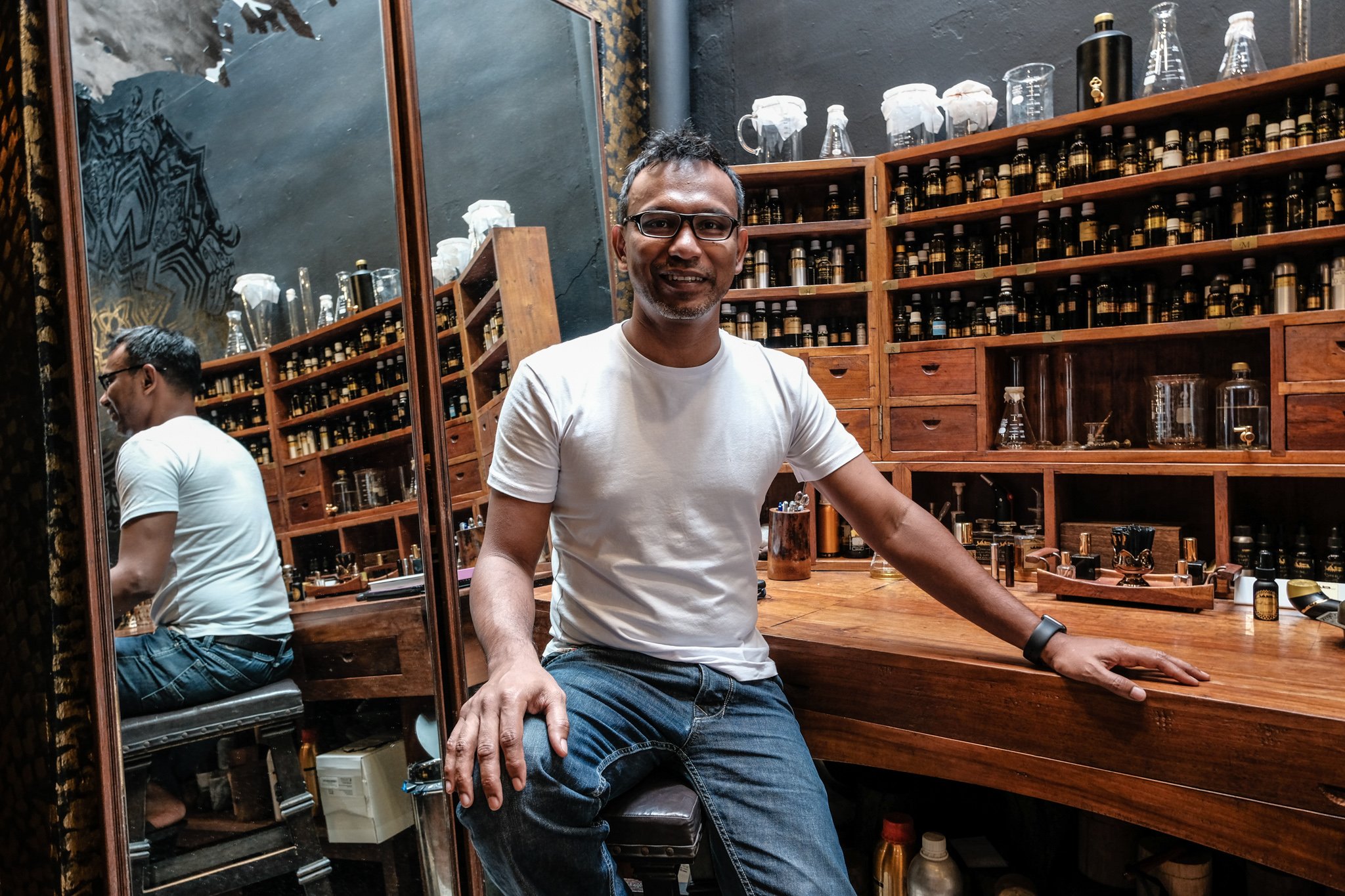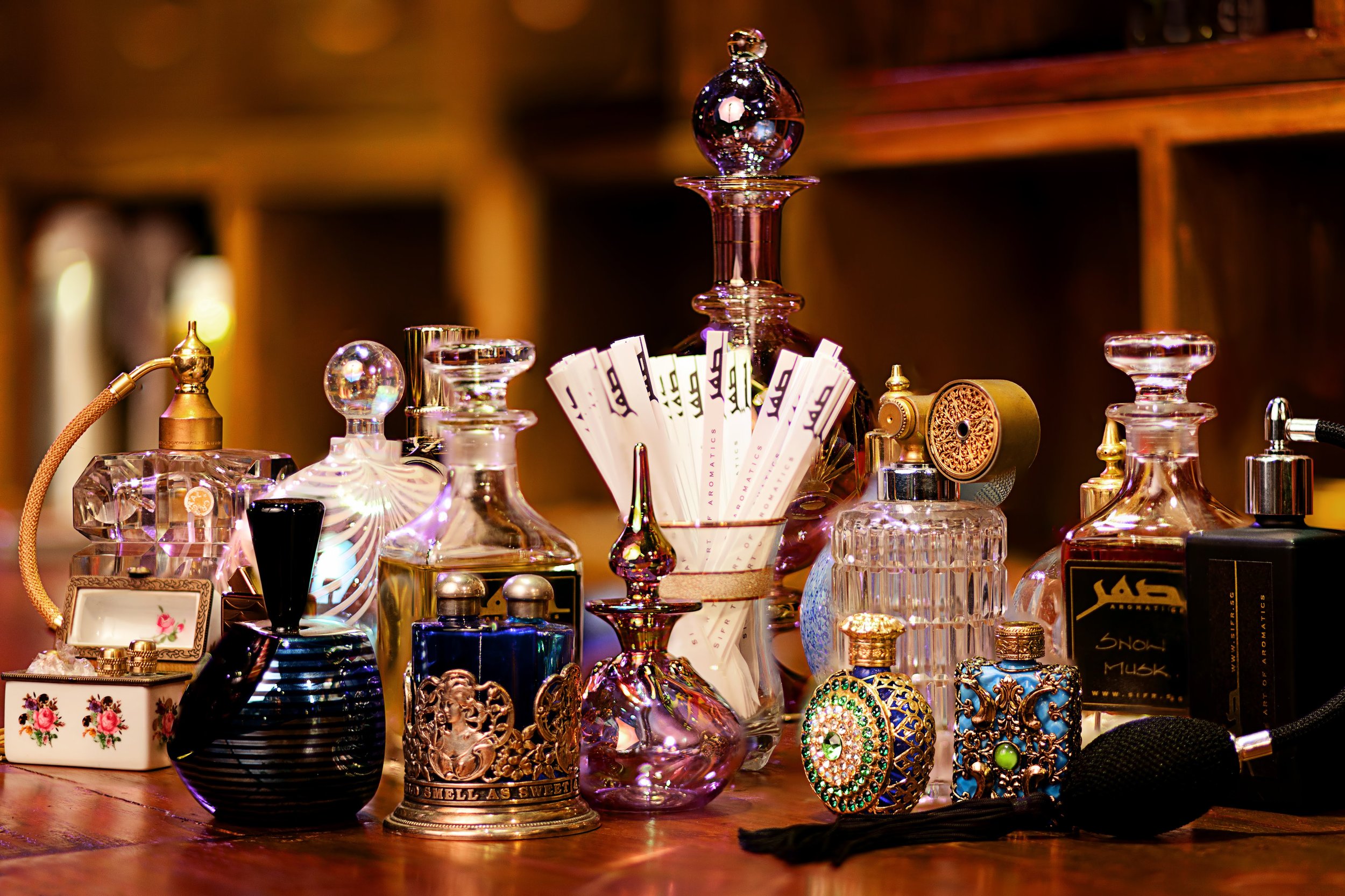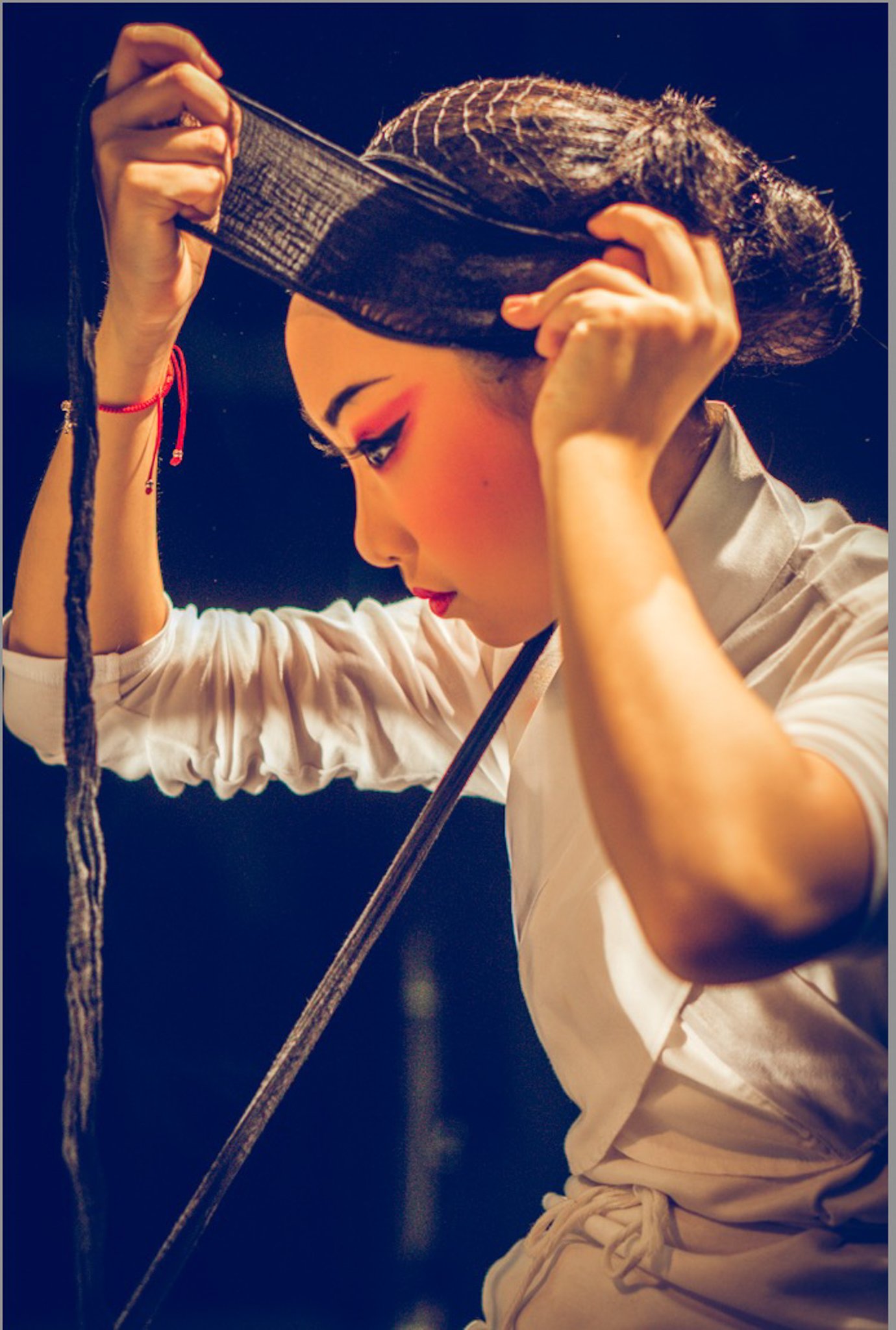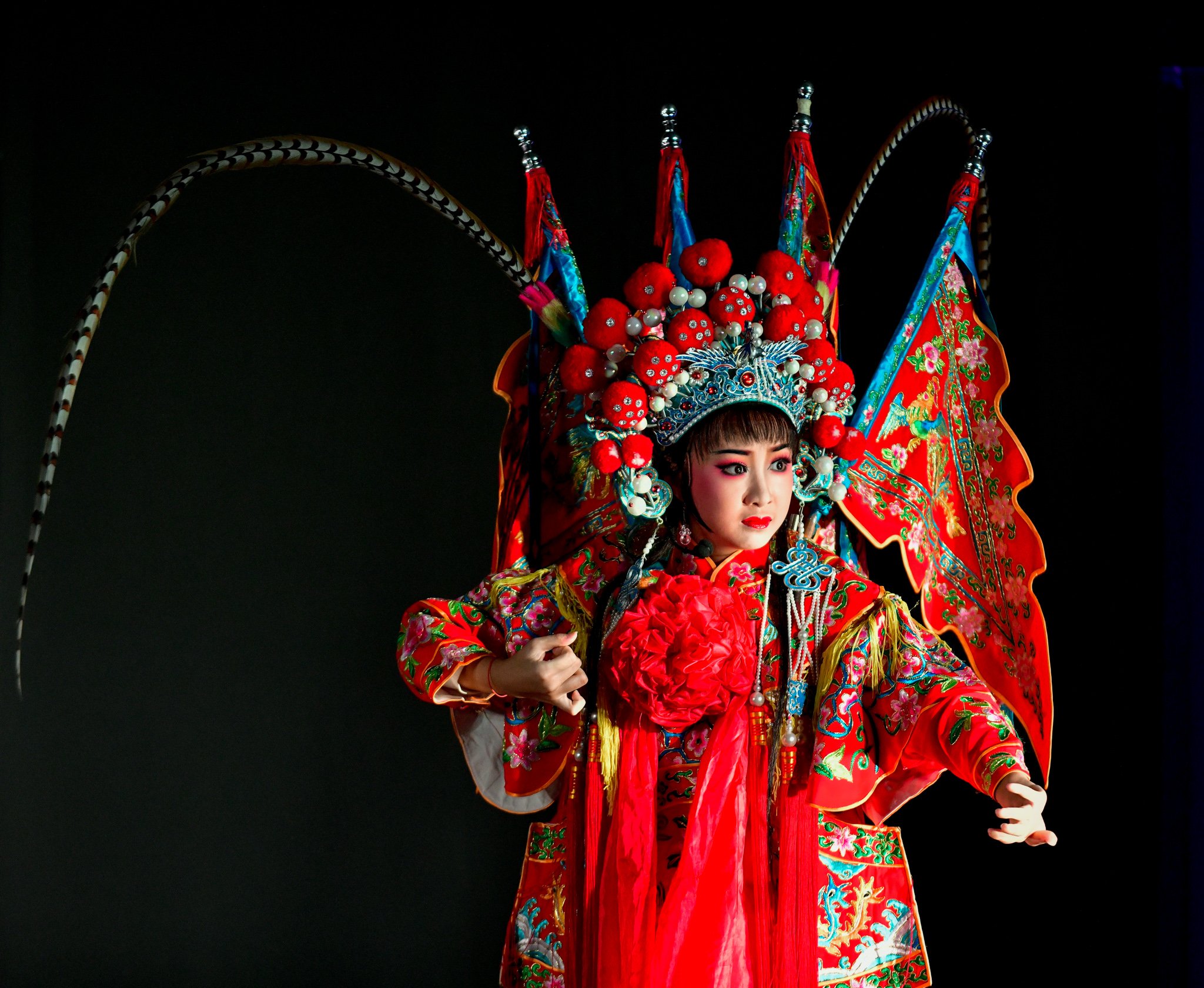The innovators keeping Singapore's rich intangible cultural heritage alive
By Toh Ee Ming
A young opera artiste, spice maker and master perfumer are striving to preserve Singapore’s diverse intangible cultural heritage.
As a young boy, Jeya Seelan’s father would return home from work with his shirt streaked with splashes of yellow and crimson, smelling strongly of rich aromas. It was delicately beautiful. When he asked why, his father replied, “Boy, I make magic.”
In 2014, Jeya quit his corporate communications job to co-run Jeya Spices and make his own magic in a wet market.
He memorized the formula for some 35 spice mixes, integral to many Singaporean dishes like chicken and fish curries. “Mixing spices is not something you can just Google. It’s a very ancient, primitive tradition that dates back centuries,” he said.
Just like an artist mixes paints to form colors on canvas, Jeya’s art lies in blending the nuances of flavor together from each individual spice powder.
Spice stalls are an integral feature of wet markets, especially in Tekka Market in Little India.
But with the rise of modern supermarkets and pre-packaged mixes, spice makers like Jeya are becoming a dying breed.
Eager to share his knowledge, Jeya now teaches customers how to customize recipes for traditional dishes. He also experiments with making his own premium blends, such as introducing the unorthodox smoked paprika spice after being inspired by Caribbean tastes.
“Spices have brought so much color and variety into my life. From the number of dishes you can concoct, the amount of tastes you can combine, it’s quite crazy,” said Jeya. “I will fight to keep it alive.”
* * *
Like wet markets and spice stalls, Islamic culture and perfumery have always been deeply intertwined, said perfume maker Johari Kazura, 45.
In 1933, Johari’s grandfather Hanifa Kazura, a Tamil Muslim trader, set up a small perfume shop in the cultural Kampong Glam precinct. He started by selling cotton buds dipped in perfume to mosque visitors. Haj pilgrims would also buy perfume from his shop before leaving for Mecca.
After a stint helping out at his father’s perfume shop Jamal Kazura Aromatics, Johari longed to do something more experimental. He honed his craft in Grasse, the perfume capital of France. In 2010, Johari founded his own brand Sifr Aromatics. In Arabic, Sifr means “zero”, to symbolize a blank slate.
Johari took traditional formulas - which tended to be heavy on roses and sandalwood – and updated it for today’s climates and tastes. He also revived some of his grandfather’s handmade products, like candles, salves and balms, though he uses organic butters and exotic oils like argan oil.
The scent connoisseur draws inspiration from varied sources – be it memories, feelings, music, movies, literature or an interesting or rare ingredient.
He’s dreamt up scents that remind him of soulful jazz performer Nina Simone or the strikingly blonde Pris character in the Blade Runner film. When a customer requested to smell like old money, Johari sought to conjure up the richness of agarwood, tobacco, old bookcases and the leather interiors of a Rolls-Royce car.
“These aromatic traditions stem from a much deeper, richer culture than a mass-market perfume on the department store shelf. I’m proud of this tradition,” he said.
* * *
Others like 17-year-old Tan Wei Tian, one of the youngest artistes in the Nam Hwa Opera troupe, a recipient of the inaugural The Stewards of Singapore’s Intangible Cultural Heritage award, is optimistic that traditional art forms like Teochew opera will not completely disappear.
She started training in Teochew opera when she was just three and has since performed in over 78 shows locally and overseas. At 15, she was the youngest artiste in Singapore to play the lead role in a full-length Chinese opera, during Nam Hwa’s 2018 production of the epic classic, Lady Liu Ming Zhu.
Her passion led her to be selected as one of the Singapore Tourism Board’s ambassadors for its “Passion Made Possible” campaign. She also featured in TEDxSingapore’s Younger 14 Asian Females for leading the next generation in preserving Teochew culture and heritage.
It was while trailing her grandmother to watch opera performances when she fell in love with the art form. She would sing opera songs, mimic their movements and even parade around in her father’s long sleeve shirts to mimic water sleeves.
“It's something that’s in my blood and I just love it a lot,” said the polytechnic student, who is now busy rehearsing for her role Zhu Yingtai in the opera Butterfly Lovers and is learning to play the pipa instrument.
To woo new audiences, Nam Hwa Opera uses social media and has a mentorship program for younger children. It also enhances its shows with digital projections and adds English and Mandarin subtitles for non-Teochew speakers.
Teochew opera is not just “old people’s entertainment” but can be action-packed and eye-catching, said Wei Tian.
“I hope younger people pick up this art form, whether it is for leisure or professionally. Because we need people who can bring this precious art form to future generations, to show them a part of our history and culture,” she said.
Link to article here.
